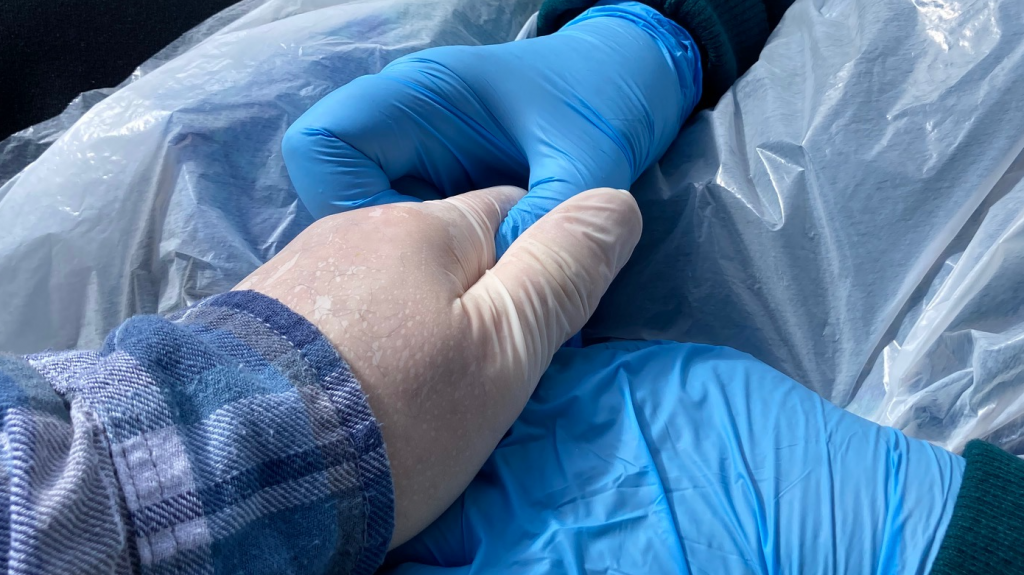Care home study maps lockdown impact on families

Families with relatives in care homes have been separated during COVID-19: to protect lives, protect the NHS and reduce the spread of the virus. Some care homes in Scotland shut their doors as early as 11 March 2020, before the national lockdown came into force on 23 March 2020.
Our study – carried out between May and October 2020 – has sought to understand the psychological impact of visiting restrictions on the families of older care home residents. It also explored the changing roles of staff, the creative and relationship based practices that made a difference for families, and the role of digital technology in this.
First findings were shared on 28 October 2020 and Policy Briefs with six recommendations, and a Research Report are now available in our Publications section.
We very much hope that the findings and recommendations from this study will inform future policy and practice.
Significant impact- a flavour of findings
Social distancing and reduced personal contact have had a significant impact, not only on older people living in care homes, but on family carers. Our research evidences the psychological distress experienced, and feelings of loss at being unable to continue in an active caring role. As we were reminded, they are much more than visitors.
Many family carers believed that their relative’s mental and physical health has declined as a result of being separated from them and the love, reassurance, stimulation and connectedness to family, past and present, they could provide. They were also fearful that they would not get back the lost or remaining ‘good days’, that time was running out and that they wouldn’t be there for them in their remaining days, weeks or months of life. The loss of touch was also profound. Furthermore, they worried that the needs of their relative would go unmet without them being there to pick up on or voice concerns.
This is also a problem of scale: there are around 36,000 adults in care homes in Scotland based on the latest figures for 31 March 2017 and 91% of them live in older people care homes (ISD Scotland, 2018).
It is also a matter of time. Previous research has also indicated that the median time people live in a care home before dying is around 1.6 years. (ISD Scotland, 2018) By the time our research was reported in Dec 2020, visiting restrictions had been in place for 9 months.
This is a matter of power and status too. Since lockdown, residents’ family members and non-essential visitors have been unable to enter care home premises. Care homes have been able to exercise discretion in following guidance and supporting essential visiting. Care home residents and relatives, on the other hand, have had little choice. This says something about the status of older people, and protection of their rights.
The longer-term implications
Lead researcher Dr George Palattiyil, Senior Lecturer of Social Work, said ongoing involvement is a key concern for families once a relative has been admitted to a care home. Lockdown has made a difficult time worse, as our report evidences and we must consider the long term psychological impact and trauma experienced by relatives – especially those bereaved during this time.
Our research report offers six key recommendations to ‘build back better’ and learn from this experience.
Working together
The research team was led by George Palattiyil from the University of Edinburgh’s School of Social and Political Science.
It was a collaborative, cross-institutional project, with researchers from the University’s Usher Institute and Centre for Research on Families and Relationships, the University of the West of Scotland, the University of Strathclyde and the Institute for Research & Innovation in Social Services.You can read more about the methodology in the Approach section of this website.
Funding
The project has been awarded £150,000 by the Chief Scientist Office. Researchers will engage with Scottish Government policy teams throughout the project.
Quotes
An understanding of how to support the health and wellbeing of family caregivers and loved ones supporting older people is significant given the impact the pandemic is having.
Dr George Palattiyil
Lead researcher
We believe that the learning in relation to how creative methods can be used to encourage positive interaction between care home residents and their loved ones will be an important contribution in the long term.
Dr Dina Sidhva
Co-Investigator, University of the West of Scotland
Translating the findings from our study to inform policy and practice, improving the experience of having relatives in care for the future, is a key priority for the research team.
Dr Neil Quinn
Co-Investigator, University of Strathclyde
The project has a robust dissemination plan to ensure effective, world-reaching dissemination of methodology, learning and outputs.
Rikke Iversholt, Director
Co-Investigator, Iriss
Links
Documents
References
- ISD Scotland (2018) Care home census for adults in Scotland






